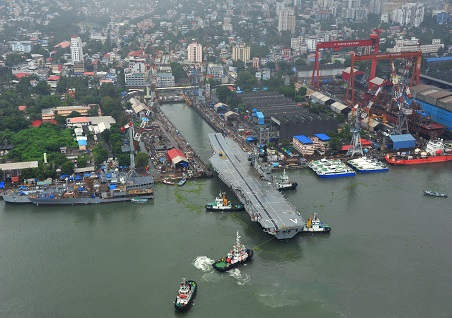India Aims to Revitalize Its Maritime Industry with Strategic Investments
On February 1st, the Indian government presented a budget that outlined various initiatives aimed at promoting the growth of the maritime industry in India. The budget includes innovative measures designed to attract investment, create jobs, and enhance the overall environment of the marine sector.
A key highlight of the budget is the establishment of the Maritime Development Fund (MDF), which aims to finance ship acquisitions and is projected to generate approximately 1,5 lakh crore rupees ($17,2 billion) for the shipping sector by 2030. The fund has an initial allocation of 25 000 crore rupees ($2,8 billion), with 49 % funded by the government and the remaining 51 % by port authorities and private entities.

Source: cochinshipyard.in
Additionally, the budget introduced the Shipbuilding Financial Assistance Policy 2.0 (SBFAP), which will provide direct financial support to Indian shipyards to help cover their operational costs and secure orders. The total budget for this initiative is set at 18 090 crore rupees ($2,06 billion).
Provisions for creating new shipbuilding clusters were also announced, aimed at strengthening the domestic shipbuilding industry. A capital allocation of 6 100 crore rupees ($700,4 million) has been designated for upgrading existing shipyards, automating processes, and improving operational efficiency.
Furthermore, a new Shipbreaking Credit Note scheme has been introduced, offering credit notes equivalent to about 40 % of the scrap value for ships dismantled in India. There are also specific funds allocated for developing human capital, including 1 200 crore rupees ($137,8 million) for Shipbuilding Capability Development Centers and 610 crore rupees ($70 million) for research and development in ship technology.
Lastly, the tonnage tax scheme, which previously applied only to seagoing vessels, has been expanded to include inland water vessels. Vessels registered as inland water vessels under the Indian Vessels Act 2021 can now benefit from a simplified tax regime based on their cargo capacity, rather than the traditional corporate tax.

